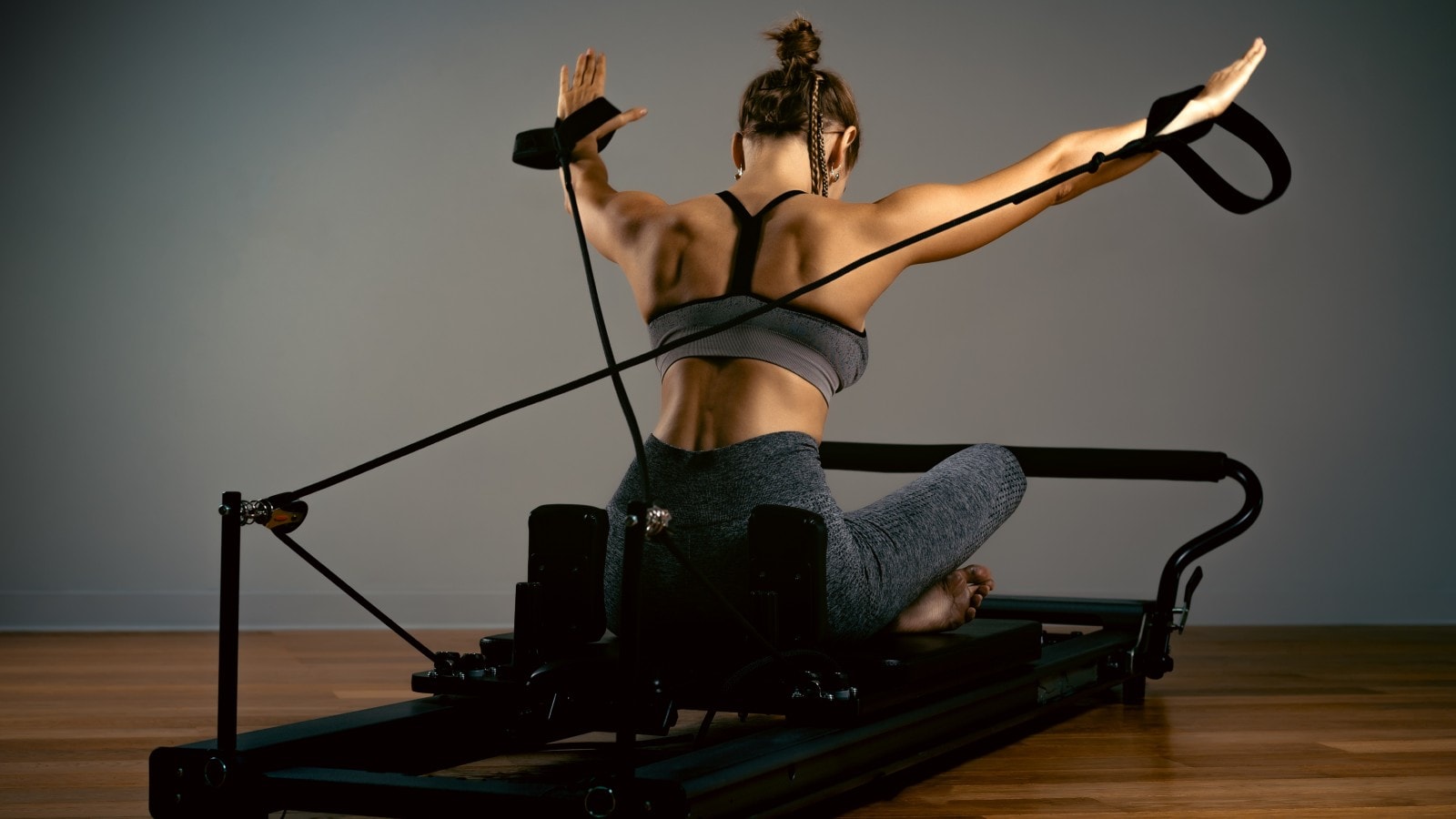
There are many exercises for stress that can help you connect with your mind, body, and surroundings. Here are some of the easiest and most effective ones for you to try.
In today’s fast-paced, high-pressure world, stress has become an unwelcome constant. It destroys our peace, dims our joy, and can even harm our physical health. Besides other relaxation techniques, exercising can help you feel better, almost instantly. Beyond its physical benefits, a workout is a stress-busting powerhouse that can transform your life. When you move your body, you are not only burning calories but also releasing stress, worry, and negative energy. You can incorporate workouts such as running, jogging, or yoga as they have a rhythmic nature that can create a meditative state, calming the mind and soothing the soul. These exercises for stress relief are easy to practice and follow.
Exercises for stress: Does working out help?
Exercise is more than just a physical activity; it is an effective stress reliever. When we exercise, our bodies release endorphins, which are natural mood boosters that promote feelings of well-being and happiness, as found in a study published in the journal Health Psychology and Behavioral Medicine. These endorphins can assist in reducing the negative impacts of stress hormones such as cortisol. Regular exercises for stress also help to relieve muscle tension, which can build up during times of anxiety.
Additionally, physical activity can improve sleep quality by regulating our sleep-wake cycle. A good night’s sleep is essential for stress reduction and overall mental health.
Beyond the physical benefits, exercise can also improve our cognitive function, boosting our ability to focus, concentrate, and problem-solve.

Best exercises for stress management
Here are some easy and effective exercises for stress reduction you can follow, as suggested by fitness expert Mahesh Ghanekar.
1. Yoga and meditation
Yoga, an ancient practice that includes physical postures, breathing methods, and meditation, is one of the most powerful form of exercises for stress reduction, as found in a study published in the International Journal of Yoga. The gentle, flowing movements of yoga help to release muscle tension, improve flexibility, and increase circulation. Deep breathing exercises, a key component of yoga, help to relax the mind and lessen anxiety. Meditation, which is commonly done during yoga sessions, allows you to focus on the present moment while letting go of problems and negative thoughts.
By combining these factors, yoga promotes relaxation, lowers stress hormones, and enhances general health. Practice gentle yoga poses as child’s pose (balasana), downward-facing dog (adho mukha savanasana), and warrior pose (virabhadrasana I). Incorporate deep breathing and mindfulness meditation to calm the mind.
2. Running
Running is an excellent method of exercises for stress reduction, as found in a study published in the International Journal of Molecular Sciences. As you run, your body produces endorphins, which are natural mood lifters that can help with depression and anxiety. Running’s rhythmic nature can also produce a meditative state, which helps to calm the mind and promote relaxation. Regular running can improve sleep quality, increase energy, and improve cognitive function.
3. Walking
Walking is a simple yet powerful form of exercise for stress relievers. As you walk through nature or around your neighbourhood, your body produces endorphins, which are natural mood boosters that can help with feeling anxious or depressed, as found in a study published in the Journal of Clinical Medicine. Walking sends you in a meditative state, which helps to calm the mind and promote relaxation. Regular walking can help you sleep better and improve your work productivity.
4. Strength training
Strength training is a simple type of exercise for stress reduction. Weightlifting or resistance band workouts can reduce stress by producing endorphins, which are natural mood boosters, as found in a study published in the International Journal of Environmental Research and Public Health. Regular strength training can also help improve sleep quality, energy levels, and self-esteem. As you gain muscle strength and reach your fitness goals, you will feel a sense of accomplishment that will allow you to handle stress better. Strength training can also assist in relieving muscle tension, which can build up during hectic times.
5. Pilates
Pilates, a mind-body exercise that emphasises core strength, flexibility, and posture, is one of the most effective exercises for stress relief, as found in a study published by Science Direct. Pilates includes slow and controlled movements which encourage mental calmness and relaxation. Deep breathing techniques, a crucial component of Pilates, can help to alleviate anxiety and produce a sense of peace. Plus, it improves bodily awareness and coordination, which leads to improved trust and less stress.

6. Tai Chi
Tai Chi, also known as “meditation in action,” is a moderate type of exercise for stress relieving, as found in a study published in the Journal of Evidence-Based Complementary Alternate Medicine. Its slow, flowing movements, along with deep breathing, encourage relaxation and attention. Tai Chi also increases flexibility, balance, and coordination, which leads to better physical and mental health. Regular practice can help you manage stress, boost your mood, and improve your general well-being.
7. Dancing
When it comes to exercises for stress reduction, dancing is one of the most enjoyable and exciting ones. Rhythmic movements and joyful music may boost your mood and reduce anxiety, as found in a study published by Taylor and Francis. Dancing produces endorphins, which are natural mood enhancers that increase sensations of happiness and well-being. It’s also an excellent opportunity to socialise and interact with others, which can help to decrease stress. Whether you enjoy ballroom dancing, hip-hop, or simply dancing to your favourite songs at home, including dance into your routine can be a great stress reliever.
8. Cycling
Cycling is one of the best exercises for stress relief. Regular riding motion can produce a meditative state, which helps to calm the mind and promote relaxation, as found in a study published in the journal Frontiers. As you bicycle, your body produces endorphins, which are natural mood relievers that can help with feelings of despair and anxiety. Regular cycling can help you sleep better, have more energy, and perform better psychologically. Spending time outdoors and breathing fresh air can help reduce stress and enhance your general well-being.
Things to keep in mind
1. Consult your doctor especially if you have any underlying health conditions or haven’t exercised in a while.
2. Start slowly and gradually increase intensity to avoid overexerting yourself, especially if you’re new to exercise.
3. Pay attention to any pain or discomfort and adjust your workout accordingly.
4. Find a workout buddy as having a workout partner can help you stay motivated and accountable.
6. Warm up before and cool down after your workout, this will help prevent injuries and reduce muscle soreness.
Takeaway
Incorporating regular exercises for stress is a powerful way to combat anxiety and improve your overall well-being. Whether you prefer gentle yoga, invigorating cardio, or strength-building exercises, finding activities you enjoy can make a significant difference in your mental and physical health.
Related FAQs
When is the best time to do exercises for stress reduction?
The best time to exercise for stress reduction is when you can consistently stick to a routine. Whether it’s morning, afternoon, or evening, choose a time that works best for your schedule and energy levels.
What are other ways to relieve stress?
Beyond physical exercise, practices like meditation, deep breathing, and spending time in nature can significantly reduce stress. Additionally, hobbies like painting, gardening, or playing a musical instrument can provide a much-needed mental and emotional outlet.








